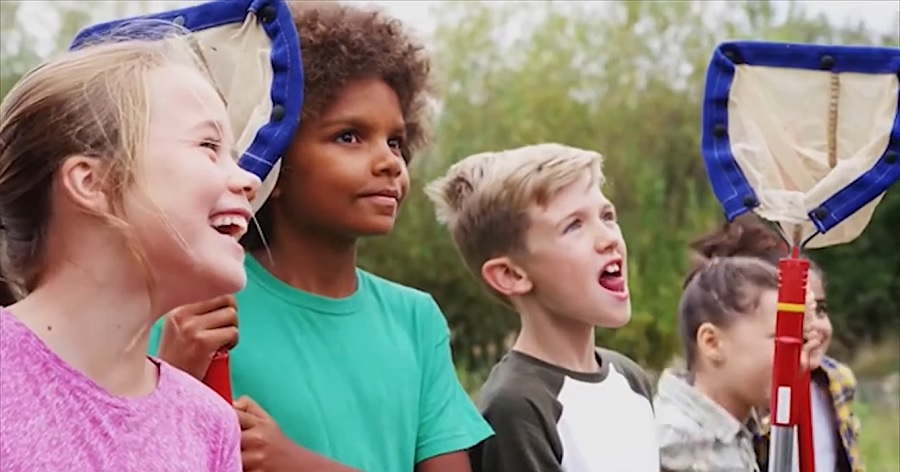
Gone are the days when life of a child was as simple as kicking a ball. Today, just like adults, children too are exposed to a whole lot of things other than just completing homework, finishing project or playing sports. Right from being bullied at school to facing emotional or physical abuse at home or even being exposed to conflicts and disruption, children go through a lot more than we can even imagine. And what impact do all of these have on a child's emotional and psychological being is something far from imagination. As such, it is natural for a child to demonstrate unfavorable behavior. Being hostile, turning aggressive at the drop of a hat and showing unpleasant behavior is common in children today. However, you need to understand that breaking the behavioral protocol and going astray from the modus operandi is not something they desire to, but something they are forced to, in order to get attention or de-stress themselves. Thus, it is advised to have a check on your child to nip the bud of aggression from the start itself. But for the same, you need to know what causes your child to show aggressive behavior. In the following lines, we have provided the causes of aggressive behavior and how to deal with the same.

Image Credit: https://www.youtube.com/watch?v=TWc_36yRoJU
Causes of Aggressive Behavior in Children
-
It has been commonly observed that children with low self esteem are more prone to becoming aggressive.
-
Genetic or temperamental influences can also make children aggressive. Adults are role models for children. But if they constantly show signs of aggression, children would also depict the same.
-
The antagonistic and hostile conduct can be due to ineffective parenting style. For instance, if parents follow permissive parenting or authoritarian parenting style, children are bound to go astray and illustrate harsh behavior due to little or excessive control.
-
When the children cannot express themselves properly, they choose to exhibit aggressive behavior in order to gain attention and express their emotions. Most of the children who show aggressive behavior do that with the intention of getting noticed from their parents or elders who usually ignore them due to work commitments or lack of time.
-
When children are constantly exposed to stressful situations, conflicts or emotional problems at home, they incline towards aggressive behavior for expressing their frustration.
-
Lack of appropriate problem solving and coping strategies taught to the children make them unequipped to deal with tricky situations. As such, to vent their emotions, children often portray violent behavior.
-
Another common cause of aggressive behavior in children could be the company of violent and aggressive friends who normally indulge in unfavorable habits.
-
Physical and emotional abuse at home is also a common reason for children showing aggressive behavior.
Dealing With Aggressive Behavior in Children
Avoid Physical Punishment
It has been generally observed that if the children are given harsh and punitive punishment, they incline towards aggressive behavior. You should keep in mind that parents and elders are role models for their children and if parents react with aggression, children are going to exhibit the same.
Be a Role Model
Heard the adage "as you sow, so shall you reap"? Inculcate good qualities in your children by showing them the ideal behavior. When parents indulge in verbal and physical abuse, they promote similar kind of traits in their children. Parents should show appropriate emotional control and the management of angry feelings to make their children develop and portray the same.
Reward Appropriately
One of the best ways to inculcate and develop a good habit or behavior is through reward system. Use the method of rewarding whenever your child behaves in an appropriate and non-aggressive manner. Encourage him by telling that you are proud of him and his good effort. This way, you would be developing a sense of what is right and what is wrong in your child. Also, he would know what elicits positive response from you.
Avoid Reinforcement of Aggressive Behavior
Teachers and parents sometimes don’t realize that they are intentionally reinforcing aggressive behavior through attention. When they punish children for acting aggressively, they actually give attention to children hence encouraging them to feel that any attention is better than no attention. Do your best to ignore their aggressive or negative behavior and praise their any small effort of appropriate behavior.
Adopt Supportive Parenting Style
Parenting styles affect the way the children will behave. Authoritarian, controlling, harsh, coercive and rejecting parenting style promotes aggressive behavior in children. Instead combine two styles to have a balanced approach. This way you would be able to control your child as well as give him the freedom to do what is right. Teaching children problem solving and coping strategies is absolutely essential for helping them grow into mature adults.
Differentiate Between Right and Wrong
It is the responsibility of the parents to teach their children what is right and what is wrong. The children should know that it is wrong to physically hurt others. If ever a child resorts to violence, parents should stop him and condemn his behavior. This way, a child would know that hurting other is not right and would not display the same ever again.
Give Alternatives to Angry Outbursts
Children generally take the route of aggressive behavior because of lack of communication skills and their inability to verbalize their feelings. So, it is advisable to give them alternative ways to express their feelings. They should be helped with their communication skills and ability to comfortably express emotions, which will greatly reduce their aggression.
Anger Management
You might argue that some people never get mad at things or situations and that how you wish you could each your child to be like them. However, note that each person in this universe gets angry over one thing or the other. It is how he controls the emotion and demonstrates it is what makes the difference. While some burst out at the slightest spark, others manage their anger in such a way that they don't become aggressive. Hence, it is very important to teach your child the technique of anger management so as to avoid being hostile. Anger management encourages expressing the feelings of anger and resentment, but in an appropriate and healthy manner.
Unattended Stress
Stress, by itself, can cause much harm to an individual and when not attended, it can lead to harmful consequences. Today, as surprising as it may sound, stress is common to children as well. This may be due to family conflicts, pressure of performing well and so on. Any ongoing and unattended stress and anxiety can promote aggressive behavior in children and hence, should be taken care of, in order to prevent further mental and physical damage.
Now that you have learned the cause and ways to deal with aggressive behavior in children, imply them to correct any signs of aggression in your kid.
 Activities for Autistic Children
Activities for Autistic Children Activities For Teens: Fun And Productive Ways To Keep Your Teenager Busy In Summers
Activities For Teens: Fun And Productive Ways To Keep Your Teenager Busy In Summers Teaching Children Social Skills
Teaching Children Social Skills Aggression in Children
Aggression in Children Anger Management for Kids
Anger Management for Kids